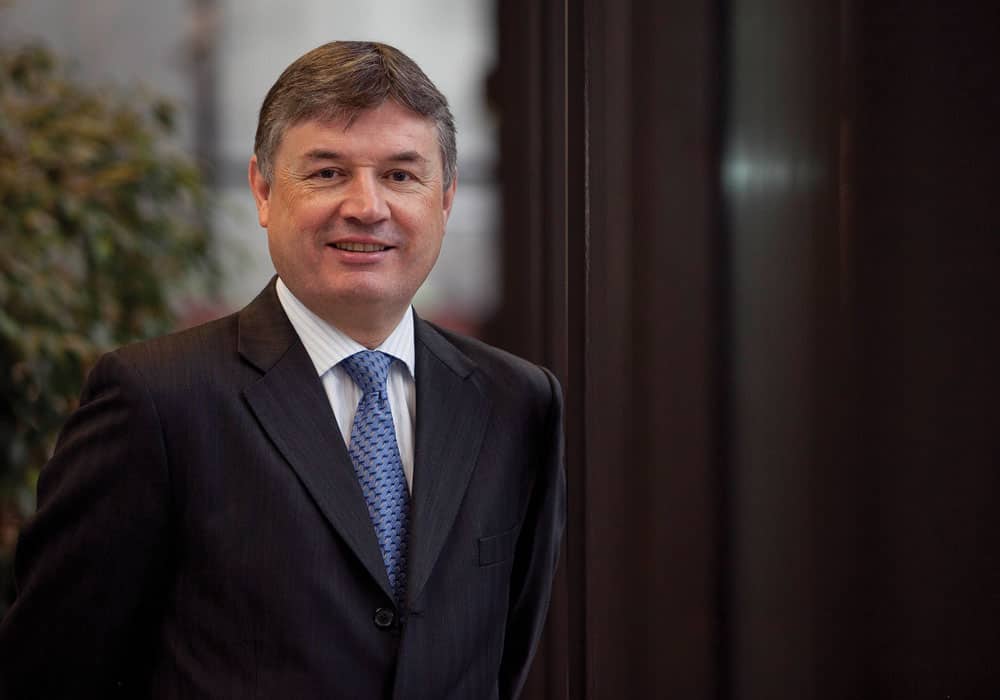Padraig Rushe talks to Barry McCall about the central role Bank of Ireland has played in the development and growth of the financial services industry.
It might be hard to believe now, but Ireland’s international financial services sector barely existed just a quarter of a century ago. Prior to the establishment of the International Financial Services Centre (IFSC) in 1987, the sector was confined to a handful of major US banks who set up here back in the 60s to meet the needs of the growing number of American multinational companies who were locating in Ireland at the time.
While in 1978 the IDA was marketing and promoting Ireland actively as a location for international financial services companies, it was to be almost a full decade before real progress was made. The added impetus came in the form of the Finance Act of 1987, which gave legal form to the IFSC.
Now globally recognised as a leading location for internationally traded financial services, the IFSC is home to more than 500 firms. Direct employment has now reached more than 32,000 people with the sector accounting for 10% of multi-national employment in Ireland and contributing more than 7% of Irish GDP. While Ireland has succeeded in attracting some of the world’s largest financial services operations to establish here, the last decade has seen the emergence of a successful domestic industry, with almost 6,000 people employed in Irish-owned firms.
“The IFSC was originally envisaged as a niche urban regeneration initiative, but it has since developed into a nationwide industry and a significant contributor to the national economy,” Padraig Rushe, director with Bank of Ireland Corporate Banking says. “And Bank of Ireland is proud to have played its part in supporting IDA Ireland’s efforts in the growth and development of the IFSC.”
This started back in 1987 with Bank of Ireland offering companies establishing in the nascent IFSC the local banking support they needed. “Firms locating here needed traditional banking services just as much as companies in any other sector,” Rushe says. “We also continue to play our part in the development of the industry in Ireland through our role as a member of the Clearing House Group.”
Bank of Ireland is also playing a lead role in what many see as the next major phase in the evolution of the international services sector globally – the creation of the Green IFSC. “We have always been enthusiastic supporters of the Green IFSC which is the latest initiative in terms of growing the sector,” says Rushe. “When we were looking for potential growth areas back in 2009 we found strong anecdotal evidence of a large increase in investment in the broad environmental and sustainable industry sectors. Our view was that this could provide a significant opportunity for the IFSC.”
Indeed, Rushe was asked to head up a group from within the IFSC to investigate this potential. “Our analysis revealed huge levels of spending in the sector. While we had been thinking about millions and billions in terms of the level of investment, it turned out to be billions and trillions,” he recalls. “The research we commissioned forecast investment of €2.9 trillion in the EU27 by 2020, with €600 billion of this being development capital and the balance being on the exploitation of the technologies once developed.”
The means by which this massive volume of investment would be financed was the question. “The money will come from a mix of private equity, investment funds, venture capital, bank credit and so on. If any of this was to come to pass it would lead to substantial financial activity and we worked on putting in place the facilities to attract it to Ireland.”
This opened up considerable scope for new activities. “The IFSC had traditionally been an administration centre and we had an opportunity to develop a new segment of activity. The challenge for us was to convince people why they should come to Ireland to carry out this activity. The difficulty is that there is no particular reason for this activity to be centred here unless we do something to stand out. At the moment, we are focussing on education and there are now undergraduate and postgraduate courses on green finance being offered by both DCU and UCD.”
Rushe believes the Green IFSC has a direct role to play in the domestic energy sector as well. “Ireland’s renewable energy resources are among the best in the world and all that is needed is to bridge the gap between those assets and the capital required for their development. That’s ultimately what the Green IFSC has the potential to do and just as we have been with the sector generally, Bank of Ireland will be right there at the centre of that.”
*This article was originally published in Funds Review Ireland 2013.






